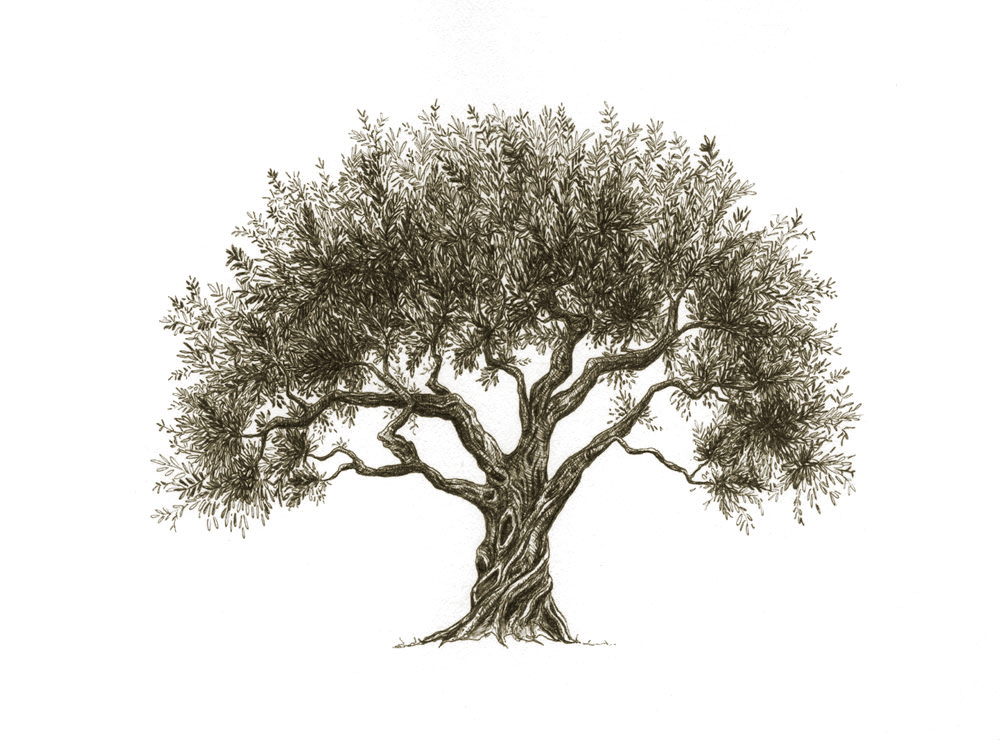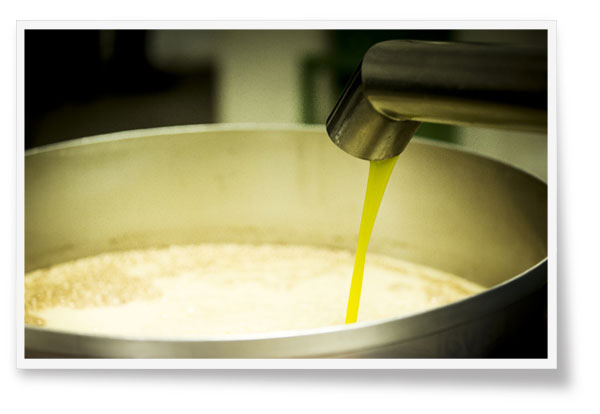
Why do we make olive oil?
The olive tree has played a fundamental role in the history of the Mediterranean region. For millennia, its main product, oil, has been a sign of wealth, health and prosperity. It was present on the tables of all the people who lived here before us, the Greeks, Romans and Egyptians above all.
In the area of Tuscany in which Sergenti is located, olives and oil are in the DNA of the people.
Elderly farmers talk about their olive trees as if they were children, noticing every little change, stepping in and taking care of them, with love, but sternly, like a grandfather dealing with a naughty, overexcited grandchild.
The younger generation waits for autumn each year, when their parents come home with the new oil, often direct from the pressing, and slice bread to toast on the fire to make “fett’unta”. The first pressing has always been one of the highlights of the year. Even now in these changing times, newly pressed oil offers some of the smells and flavours that can distract the whole family from their smartphones and tablets…at least for a while!
Here oil is tradition and tradition cannot be understood without oil. This respect for tradition underpins our choice to cultivate only the native Tuscan species of olive tree, which are linked historically to our land. Other cultivars might have led to higher levels of production, but we were taught to follow the traditional path to excellence, not compromising quality for quantity.
From a space for distraction and peace, to take time out from the frenetic world that we live in, our company has become a dynamic business, with thousands of olive tree and hectars of grape vines.

Why we are organic
Our commitment to growing olives and grapes, the fruits of Tuscany, to the highest possible standards includes a strong respect for nature. Organic farming was the natural choice for us, offering a business model that protects the future of the natural environment and results in products that are safe for ourselves, our families and our customers.
According to Wikipedia “Organic agriculture is an ecological production management system that promotes and enhances biodiversity, biological cycles and soil biological activity. It is based on minimal use of off-farm inputs and on management practices that restore, maintain and enhance ecological harmony”.
A recent study from the University of Newcastle showed that organic farming can reduce exposure to toxic heavy metals, particularly cadmium. This is a metal for which, together with lead and mercury, the European Commission has established strict levels of tolerance in foodstuffs.
Without the use of chemical products and synthetic treatments, I Sergenti’s olives and grapes are obtained with full respect for mother nature. In this way, they provide the human body with an increased level of anti-oxidants, already an important component of extra-virgin olive oil.
Why we filter
At the end of the procedure for olive oil production, tiny pieces of olive can be found in the oil. They make the appearance of the oil unrefined and cloudy.
Until recently, it was widely believed that this was a positive trait; as if the coarse appearance was a sign of the genuine quality of the oil. On the other hand, filtered oil was thought to be lower quality. People believed that filtering caused an organoleptic impoverishment of the oil.
Nothing could be further from the truth. The pieces of olive and the percentage of water left in the oil after pressing reduce its preservation time and accentuate any defect, even the smallest, found in the oil. Thus, non-filtered oil must be consumed in a short time and requires careful storage, away from the light and from changes in temperature.
At I Sergenti, our oil is pressed immediately after harvest and then goes through the filtration process. Filtering does not alter the initial quality of the oil in any way. Instead it is necessary, in our opinion indispensable, to preserve the oil in its optimal condition in the period before it is consumed.
Numerous studies undertaken by labs across Europe have demonstrated this, without a shadow of a doubt. Those who continue to sustain the contrary may be motived by commercial strategies. Filtering oil is a costly process, which cannot be included in medium-low costs products.
As we cannot control post-sales factors, and as we wish our oil to be enjoyed and appreciated for a long time, filtering was a necessary choice for us. It is a choice that takes care of the organoleptic heritage of the oil and the health and enjoyment of our clients.




